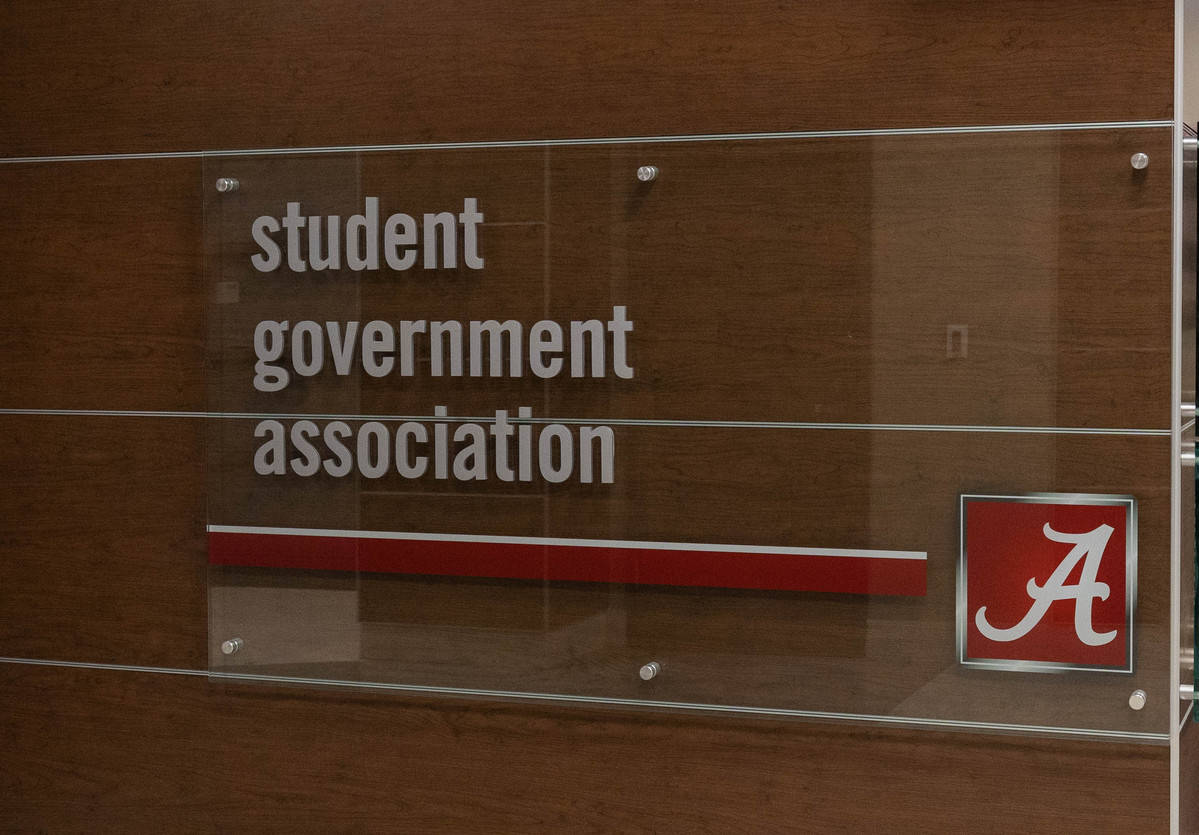An election where only a quarter of the eligible voter pool casts a ballot simply fails to adequately represent the student body and its diverse needs. That’s why we were enthusiastic about sponsoring SGA Sen. Eyram Gbeddy’s voting window expansion bill.
Simply put, our voter turnout issue demands attention, and this bill is an earnest attempt to address it. Will extending the voting window to 48 hours be a comprehensive cure for this problem? No, our low voter turnout reflects a deeper culture of voter mistrust and apathy, but that’s another issue for another day.
If the SGA is going to live up to its motto of “students serving students,” the Senate must begin by meeting them where they are. We should meet them where they are when they are literally on the Senate floor pleading with their representatives to make voting more accessible to the student body at large.
Eighteen students came to plead their cases, some sharing personal experiences and anecdotes regarding mental health, academic and professional challenges, and the necessity of working to earn a living as barriers to them voting in the existing 7 a.m.-7 p.m. window. All of this was ignored when the bill was killed without proper parliamentary procedure, ignoring the voices of those 18 students who came forward to plead their causes.
Thankfully, because of the breach of parliamentary procedure, and the subsequent ruling from the Judicial Board, the bill will be back on the floor for a vote Thursday, and each senator will have a second chance to act with integrity and obey the needs of their constituents rather than protecting special interests.
The first time the voting window expansion bill was up for a vote, the arguments in favor of ignoring students’ demands from several senators were obviously flawed.
Sen. Cassidy Matwiyoff, who was elected to serve as the next vice president for academic affairs, said that “our UA SGA is modeled after the federal government. The federal government does not have a 48-hour election. … We have a 24-hour election.”
Matwiyoff’s statement is interesting because it contains no specific argument against Gbeddy’s bill. Plus, the SGA being modeled after the structure of the federal government does not imply that we need to follow its every practice.
For instance, the SGA has a candidacy period of just nine days, just 216 hours. The American presidency, on the other hand, has a candidacy period of more than a year. But for some reason Matwiyoff has not proposed any expansion of the SGA’s candidacy period to match its federal equivalent.
Plus, voter turnout in the 2020 federal election was over 66%. Voter turnout in the SGA election on Feb. 27 was just 26%. If we accept Matwiyoff’s suggestion that we should be more like the federal government, then increasing voter turnout (perhaps by expanding our voting window) would be a great place to start.
Sen. Chloe Pickle said “extending [the voting window] to 48 hours is going to lead to extra campaigning past the campaign period to … suggest or encourage others to vote. … Of course encouraging others to vote is acceptable, but I just believe that within 12 hours this can be done, and even 24 hours — I feel that that is more reasonable — but 48 hours, I feel, is going to lead to a lot of unfair voter turnout.”
Pickle attempted to invent a specific downside to increasing the voting period to 48 hours, vaguely gesturing at the idea that such a move would encourage campaign violations. Yet, she provided no evidence to support this claim.
Perplexingly, Pickle worried that Gbeddy’s bill would give candidates more time to “suggest or encourage others to vote” and then immediately walked it back: “Of course encouraging others to vote is acceptable.” And what does the phrase “unfair voter turnout” mean? We doubt that most students share Pickle’s alarm at the prospect of more people voting.
Pickle suggested that she would support a 24-hour voting window, but that 48 hours was a bridge too far. Sen. Jenni Page later echoed that sentiment. But if both were so willing to compromise on the bill, why didn’t they motion to amend it on the floor?
The answer is, of course, that Matwiyoff and Pickle, and other members of the opposition to Gbeddy’s bill, were not actually interested in an honest consideration of the bill. They knew how they were going to vote on it long before they stepped into the chamber that evening.
Their arguments were not the natural byproducts of analysis of the bill’s strengths and weaknesses — they were post-hoc justifications for how they had been told to vote.
Let us point out the elephant in the room because we know, the Senate knows, and the 18 students who came to advocate for themselves know why the bill failed.
The Machine informed its Senators to kill this bill because it thrives off of creating a weak democracy at UA, and any attempt at building an engaged voter pool threatens it, its candidates and the special interests it protects.
As we move forward, we need to confront the underlying issues that perpetuate voter apathy and disenfranchisement.
This is not just about extending the voting window; it’s about fostering a culture of inclusion, transparency and accountability within our student government. It’s about empowering every student to have a voice and ensuring that their voices are heard.
We urge our fellow senators to seize this opportunity to make a meaningful difference. Let’s stand together in solidarity with the students we serve and vote in favor of the voting window expansion bill.
Sam Badger is a master’s student in history and an SGA senator from the Graduate School. He is also the speaker of the Graduate Student Association House of Delegates and vice president of the Graduate History Association.
Ragan Hope Wilson is a junior majoring in social work and an SGA senator from the School of Social Work.







